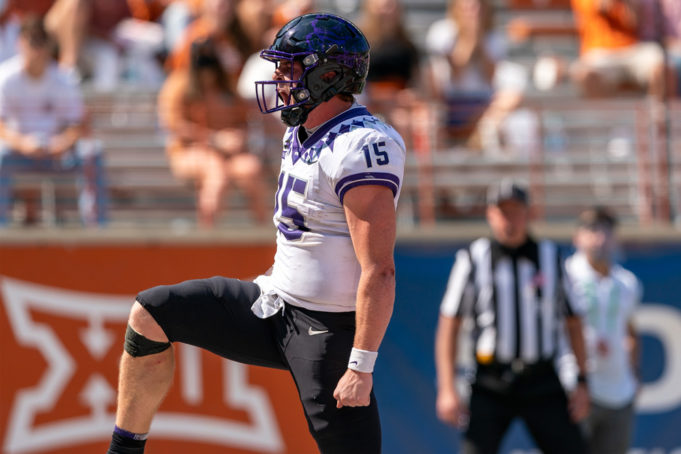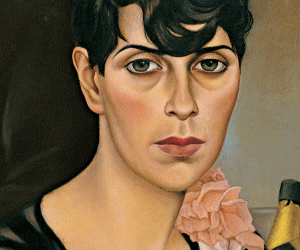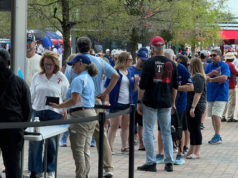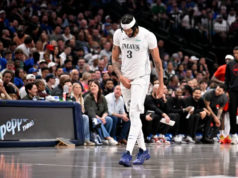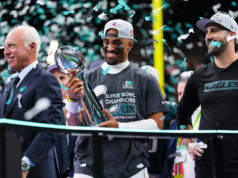Crack the beers, clutch your pearls, and cue up indignance, because college athletes ’bout to get paid. Somewhat quietly on July 1, intercollegiate athletics experienced the largest change to their core structure anyone alive has ever experienced.
The timeline is long and convoluted but influenced greatly by a U.S. Supreme Court ruling from June. NCAA v. Alston affirmed that many of the ways the governing body of college sports compensates athletes has and continues to violate antitrust laws, and while the ruling does not necessarily convey that players should be paid to play college sports, it has placed the NCAA on the defensive. The high court’s ruling essentially killed the NCAA’s bloodthirsty desire to prevent athletes from being paid for their NIL (Namesake, Image, Likeness). The battle sprung from EA Sports’ NCAA Football video game franchise, which always featured a prominent player on the cover and teams that resembled the real-life players to an impressive degree.
There have been many questions about NIL, and since clear answers can be hard to come by, I solicited help from the best source I could find: Senior Associate Athletic Director for compliance at TCU, Ike Ukaegbu. The 14-year veteran of athletics compliance was gracious in walking me through his staff’s process in establishing new institutional policies for Frog athletes. It turns out that schools in Texas shaped SB 1385 as state lawmakers reached out to compliance directors and general counsel from various institutions to craft the wording and restrictions utilizing their expertise.
“We didn’t want to get left behind, so in March or April, some state legislators reached out to compliance administrators to start crafting a bill,” Ukaegbu said.
SEC country and Texas led the charge. TCU started working through the framework of their state bill at that time, since they weren’t sure if anticipated NCAA policy changes were going to be adopted or not. The preparation paid dividends, as the big wigs at the national level dragged their feet before punting responsibilities to the states and their institutions. The NCAA announced their new temporary policy on June 30: Starting on July 1 — the earliest effective date of the states, such as Florida, who passed such laws — schools could follow guidelines set forth in their new state laws or craft an individual policy if their state law had not gone into effect or hadn’t been passed. There are currently 27 states that have passed new NIL legislation and four that have introduced bills working their way through committee.
That’s how we got here, but where are we? Athletes can be compensated for use of their namesake, image, and likeness, but that doesn’t mean they can specifically be paid to play, citing violation of NCAA bylaw Article 12 on necessitating amateurism. So, all of SMU’s shenanigans in the 1980s — along with many others — still wouldn’t fly underneath this new set of guidelines. Colleges are forbidden from brokering sponsorship deals for their players, but as TCU’s director told me, they are able to consult and advise athletes on building and monetizing their personal brands.
TCU utilizes Opendorse, a sports marketing company, as the primary resource to assist their student athletes in managing their personal brands. The company seemed poised and ready for these law changes and has an impressive book of college clients including conferencemates Texas, Texas Tech, and Kansas State, as well as other national-level teams like Ohio State, LSU, and Florida.
Signing deals started flowing through the interwebs within days of the new policy announcement. The first finalized contract with financial details published involves Miami quarterback D’Eriq King, who signed with an auto group for 20-grand. If that seems like big money, it’s not. Hercy Miller — the son of well-known rapper Master P — is a basketball signee with Tennessee State who is said to have lined up a $2 million contract with Web Apps America. Miller’s father said the deal had been in the works for some time, but they were waiting on the announcement of anticipated rule changes to announce and finalize it. Barstool Sports is known for reporting news but made some of their own when a Jacksonville State volleyball player told the outlet she wanted to be their first sponsored athlete. Barstool quickly signed her and then opened their door to any Division 1 athlete who was interested and said they would be welcomed to their sponsorship portfolio.
Despite mainstream worries that college athletes are about to become akin to NASCAR drivers with sponsor logos pasted all over them, Ukaegbu quelled these fears by informing me we’re not likely to see many athletes posting or filming promos donning school logos. Most of them are trademarked intellectual property of the institution and won’t be allowed to be worn or used for private promotion, though there might be some schools that will allow it. The types of deals and companies are also restricted dependent on existing university partnerships. TCU athletes, specifically, won’t be repping Adidas stripes or protecting the Under Armour house because they are beholden to Nike at an institutional level. Other private companies involved with supporting athletic departments are likely to receive no-contest consideration for athletes potentially supporting competitors from specific industries.
No matter how many caveats we take into consideration, these new laws have changed collegiate sports forever.
“I just want to make sure they do it the right way and they don’t get taken advantage of, they don’t get swindled,” Ukaegbu said when we agreed the change was a positive one for student athletes. “This is good for [the athletes] and their families. I also hope we maintain what college sports is and we maintain the importance of higher education.”



